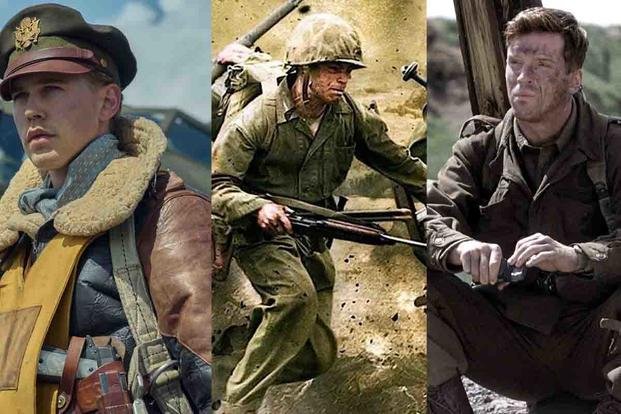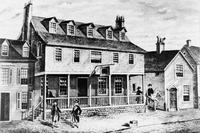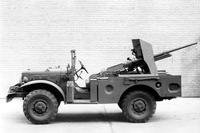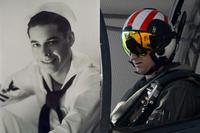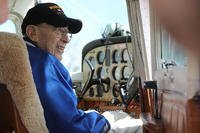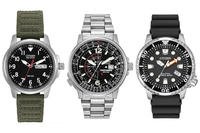As an Amazon affiliate partner, Military.com earns from qualifying purchases.
"Docu-drama" used to be a dirty word among television critics, and even most audiences. We tend to forget that today, because our many streaming services are always ready to call up any number of historical dramas, about almost any period, on demand. What we used to call "docu-drama" -- a made-for-TV dramatized reenactment of a historical event, usually ripped from the headlines and hastily made -- is now relegated to the Lifetime Channel or late-night broadcast clearance bin.
This all changed in 1998, when Tom Hanks began adapting historian Stephen E. Ambrose's ''Band of Brothers: E Company, 506th Regiment, 101st Airborne: From Normandy to Hitler's Eagle's Nest" for the screen. HBO spent $125 million bringing this remarkable true story of World War II to life in 2001, raising the bar for the historical dramas that followed. The series also raised the bar for Hanks, who has since made two companion series about other theaters of the war, "The Pacific" and "Masters of the Air."
All three series are based in historical fact, using well-researched books that viscerally represent the turmoil of World War II and document the lives of real people. They're all also really, really good, demonstrating that a well-made TV show can help viewers experience history like no textbook ever could. But with three series spanning more than 20 years, did Tom Hanks and Steven Spielberg ever outdo the original?
1. Band of Brothers (2001)

The short answer to the question above is "no." Not only was the author of the source material still alive and available to Hanks and his team, but so were many of Easy Company's veterans, including Dick Winters, Bill Guarnere, Frank Perconte, Ed Heffron and Amos Taylor. Most of the actors were able to at least speak with their real-world counterparts. It was far from perfect, but it was about as real as Hollywood gets.
In terms of accolades, "Band of Brothers" was nominated for 19 Emmys and won six, including Outstanding Miniseries. It also won a Peabody Award, which honors outstanding examples of powerful, enlightening and invigorating stories in all of television, radio and online media.
Creating a series that lived up to the book (and Easy Company itself) was no small feat. Hanks spent three years developing the 10-episode masterwork, which had nine different directors and a cast of dozens, all overseen by Speilberg. It also launched the careers of actors such as Michael Fassbender, Tom Hardy, Colin Hanks, Simon Pegg and Damian Lewis. The producers spared no expense: At the time, it was the most expensive television series ever produced, costing an average of $12.5 million per episode (it ranks as No. 13 today, behind the likes of "The Lord of the Rings: The Rings of Power," "The Crown" and even "The Pacific," among others).
The result was probably the most realistic, heartfelt and gut-wrenching story of World War II in Europe ever depicted on screen, one that is still just as riveting more than two decades later. In its dedication to accuracy in retelling the story of Easy Company, "Band of Brothers" showed that viewers could follow a complex web of characters and storylines. More than that, it showed in detail the horrors of war and the bonds that can form between those fighting it. In doing so, it not only preserved the memory of Easy Company for future generations, but the memories and deeds of everyone who fought in World War II Europe.
2. The Pacific (2010)

The second of Hanks and Spielberg's companion series is more violent in its representation of the Pacific Theater, which was one of the most brutal wars ever fought. "The Pacific" pulls no punches in its depiction of that kind of fighting, creating a brooding and, at times, unrelentingly dark picture of what fighting in the Pacific War was like -- and rarely lets up, which can be a problem for viewers.
It's not that the war against Japan wasn't depicted accurately. The series was based on the memoirs "Helmet for My Pillow" by Robert Leckie, along with "With the Old Breed: At Peleliu and Okinawa" and "China Marine" by Eugene Sledge, both Marines and both depicted in the 10-episode, $250 million miniseries. This story follows troops from three different regiments within the 1st Marine Division fighting the Japanese between 1943 and 1945, a series of battles that included Guadalcanal, Cape Gloucester, Peleliu and Iwo Jima.
In terms of audience, 'The Pacific' was a victim of media stratification, where Netflix, Hulu and Amazon Prime began killing cable with easily accessible movies and television. By the time this second installment aired on HBO in 2010, it only received a third of the viewership as "Band of Brothers," because the preceding nine years brought a seemingly unlimited number of shows, movies and social media for much cheaper than a cable package. Viewers had just begun to realize the power of streaming their old favorites for $4.99 per month.
That doesn't take anything away from this beautifully made, historically accurate and wholly engrossing series, which won eight Emmys in 2010, more than any other program (it also won a Peabody Award). But what "Band of Brothers" does better than "The Pacific," however, is develop not just the characters, but the bonds forged between them. In "The Pacific," the focus tends to be more on the war itself rather than those fighting it. The darkness of the war overshadows the bonds between U.S. service members that "Band of Brothers" established so well.
Finally, perhaps because of the use of multiple sources of material, "The Pacific" can feel like separate stories -- which doesn't take anything from its value. The show is telling an important story about a huge war, but it feels almost like two shows until Eugene Sledge meets Merriell "Snafu" Shelton, R.V. Burgin and Bill Leyden. The series is at its strongest when it's developing the bonds between those Marines and doesn't really begin to develop those bonds until halfway through its run.
3. Masters of the Air (2024)
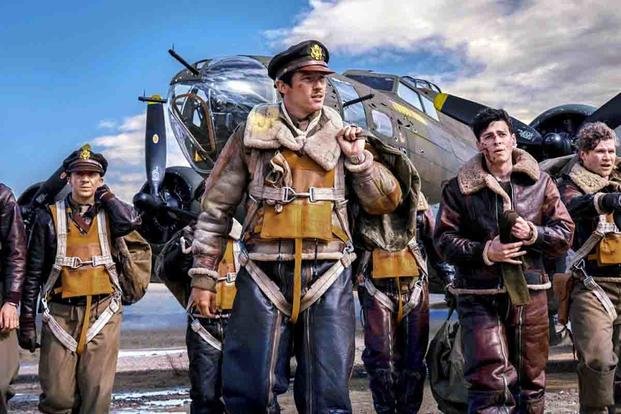
"Masters of the Air" was also based on a precise history of World War II. This time, it was Donald L. Miller's "Masters of the Air: America's Bomber Boys Who Fought the Air War Against Nazi Germany," a story about the 8th Air Force's 100th Bomb Group over Nazi-occupied Europe. Hanks and Spielberg began developing this third installment with HBO as far back as 2013, but it became so expensive, HBO decided not to produce it. Instead, Apple TV+ picked up the $250 million tab.
Writer John Orloff (who worked on "Band of Brothers") adapted Miller's real-world characters, skillfully portrayed on screen by Austin Butler, Callum Turner, Anthony Boyle, Barry Keoghan and dozens more. Frustratingly, critics of the show were more concerned with the computer-generated air combat than its characters, accuracy or historical storylines. The problem with using actual B-17 Flying Fortresses for the show would be that only 10 are still airworthy and a number of crashes have led to museums ending their flying programs.
One of the most poignant reasons "Masters of the Air" is so good is because it's also so timely: It's a reminder that the number of World War II veterans still alive is dwindling rapidly. Though only four of the 100th Bomb Group's veterans were still alive during production of the series, none of them were depicted in the show. John "Lucky" Luckadoo, a member of the "Bloody Hundredth," attended the show's premiere at age 101, where he received a standing ovation.
Stories are about people, about characters. "Masters of the Air" tries to build the band of brotherhood between its characters. But a sense of pathos hangs over each as the show goes on; knowing they're all likely to be shot down and lost makes it difficult for viewers to really invest in any of them. The airmen also spend most of their time in combat behind masks, a necessary and historically accurate depiction to be sure, but the difficulty in identifying the characters' faces only adds to difficulty in identifying with their stories.
Finally, each episode feels less like a continuous story and more like an anthology, and not just for the characters. The episodes jump between genres, moving from action-adventure bromance, escape thriller and melodramatic tragedy and back again.
There Is No 'Bad' Show
What all three of these shows do best is keep the deeds and memories of the men and women who fought in World War II alive. Choosing which of the three series is "best" is an easy task, because the original idea was conceived and painstakingly executed to create "Band of Brothers." Producers Steven Spielberg, Tom Hanks and (later) Gary Goetzman have created cinematic masterpieces in all three. The worst that could happen is that the Navy doesn't get the same treatment.
Keep Up With the Best in Military Entertainment
Whether you're looking for news and entertainment, thinking of joining the military or keeping up with military life and benefits, Military.com has you covered. Subscribe to the Military.com newsletter to have military news, updates and resources delivered straight to your inbox.
